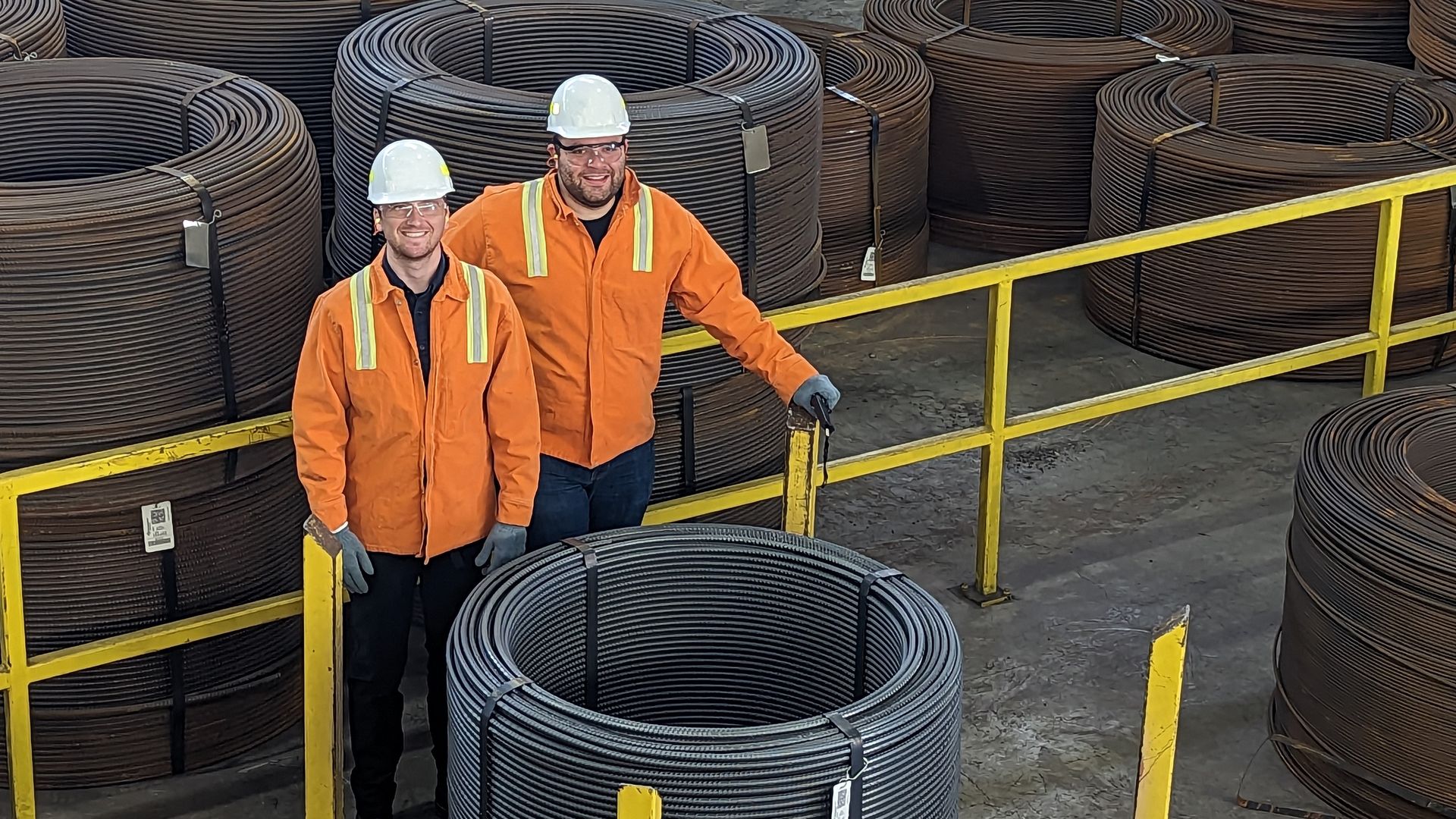Exclusive: Allium raises $3.25M for longer lasting steel

- Katie Fehrenbacher, author ofAxios Pro: Climate Deals

The founders of startup Allium, CEO Steven Jepeal, [L] and CTO Samuel McAlpine [R] standing behind their stainless steel coated rebar. Image courtesy of Allium.
Steel tech startup Allium Engineering has closed a $3.25 million seed round to start producing its steel rebar, the company told Axios.
Why it matters: Climate change and failing infrastructure are driving demand for longer lasting, lower carbon construction materials.
Zoom in: Allium raised the round from lead investor Propeller, Aera VC, Greatwave Ventures, and Anthropocene Ventures.
- The Somerville, Mass.-based startup will use the funds get a new facility operating in Boston by this July, with a goal to produce over a thousand tons of stainless steel-coated rebar within the next two years.
- Allium says its steel products can extend the lifespan of infrastructure like bridges from 30 years to over 100 years and avoid significant carbon emissions by extending time between maintenance and repairs.
- The company's steel rebar will be used in a planned bridge construction in Walton County, Florida and a planned sea wall in Key West, Florida.
How it works: Allium, founded in 2022, coats customer steel with a stainless steel layer, which keeps the steel from corroding.
- A steel maker can stretch a coated unfinished block out into rebar, or other steel products, with the coating remaining intact and protective.
- Allium's co-founder and CEO Steven Jepeal says "The idea is, we want it to be identical to normal rebar, but last forever."
- Cladding steel with Allium's stainless steel coating adds cost to the rebar production process, but Jepeal says the extra cost is much less expensive than other protective solutions like epoxy-coated rebar or fully stainless steel rebar.
State of play: Investing in lower carbon steel has been a surprisingly hot area of investment, but much of it has been focused on using new processes and clean energy to make steel.
The bottom line: The world desperately needs longer lasting, lower carbon infrastructure as the climate changes, storms become more intense, and sea levels rise.